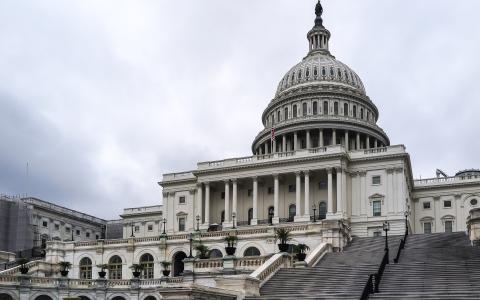
Urgent legislative action is imperative to decelerate the rapid escalation of U.S. debt, a concern highlighted by Wharton professor Joao Gomes, who cautioned against the potential market upheaval by 2025 if fiscal policies remain unchanged.
Drawing parallels with the UK's 2022 economic turmoil—sparked by a stimulus-laden budget proposal that escalated domestic yields, surged mortgage rates, and depreciated the pound to an all-time low—Gomes emphasizes the looming threat to the U.S. financial stability.
Echoing this sentiment, Gomes remarked on CNBC, "Next year could witness a pivotal moment where markets recognize the fiscal pathway as unsustainable, akin to the UK's financial predicament."
The foreshadowing of such a scenario was palpable in November 2023, when a Treasury bond collapse drove yields to 5%, attributed to the escalating U.S. debt and the oversaturation of Treasury bonds in the market.
Presently, with a staggering $34 trillion national debt—propelled by significant spending and climbing debt service costs—alarms have been sounded over the U.S. inching towards a default crisis within the century. A projection by the Penn Wharton Budget Model underscores a narrowing window of approximately two decades to rectify the fiscal imbalance before it becomes unmanageable, irrespective of tax adjustments or spending reductions.
Amidst these challenges, the expiration of the 2017 tax cuts, a relief initiative introduced under the Trump Administration to alleviate corporate tax burdens, stands as a critical juncture for fiscal policy debates in the forthcoming year, according to Gomes. He posits, "The upcoming discourse on whether to sustain the tax cuts is crucial; their extension is a luxury we cannot afford."
The trajectory of these tax reforms is intrinsically linked to the forthcoming electoral verdict, with the stance of the candidates on fiscal management still pending clarification.
However, the resolution to the fiscal dilemma extends beyond tax reforms. An across-the-board tax increase coupled with bipartisan support for trimming expenditure is deemed essential by experts like Maya MacGuineas, the president of the Committee for a Responsible Federal Budget. She advocates for a balanced approach, lamenting the lack of political resolve to implement viable fiscal strategies.
The issue of U.S. indebtedness, underscored by warnings from financial magnates like Jamie Dimon and Ken Griffin, signifies a collective acknowledgment of the impending fiscal crisis, calling for immediate and concerted action to safeguard the nation's economic future.



